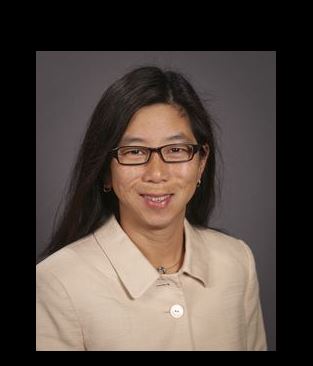The Naffziger Society is pleased to announce that Jenny Wang, MD is the society’s new Vice President. Dr. Wang completed medical school at Yale School of Medicine & during her residency at UCSF she received a Master’s Degree in Clinical Research, with a focus on outcomes in colorectal surgery. After residency she completed a colorectal surgery fellowship at the Mayo Clinic. Dr. Wang said, “I spent my first 8 years in practice developing the colorectal surgery subspecialty at Kaiser Permanente San Jose and robotic colorectal surgery at Kaiser Permanente Santa Clara”. Read her spotlight questions below:
1. How did you get interested in colorectal surgery?
I had first become interested in IBD following a medical student experience taking care of a very ill teenage girl with UC . I saw her remarkable turnaround after having a total proctocolectomy and J pouch and became interested in surgery and Gi diseases. Colorectal was one of my earliest rotations as an intern at UCSF and I really enjoyed everyone I worked with—they were kind, wonderful people and clearly excited about their work. As I worked more closely with Dr Varma as my research and career mentor, I met other colorectal surgeons at meetings and appreciated the great collegiality within this subspeciality.
2. How you achieved that interest and then evolved it into your current position & Diversity , among other roles?
I worked with Dr. Varma during my research with a focus on pelvic floor diseases and also patient quality of life related to colorectal disease, leading me to pursue fellowship training for colorectal. What I enjoyed most about this subspecialty was the variety of cases (anorectal disease to abdominal operations, open and minimally invasive cases) and also the variety of patients young and old, healthy and sick. I appreciated that most colorectal disease was curable, even earlier stage cancers, and also many surgical treatments could bring signficant improvement in quality of life to patients.
3. Advice to Naffziger members who may want to pursue hospital or medical school leadership positions?
My advice is to continue throughout your career to stay actively involved, not only in patient care but also finding opportunities within your medical system to participate in or lead projects, small or large. Whether you are in academics, community hospital, or group practice, find projects that excite you—whether it is at the local or national level to improve patient care, education, or enhancing relationships among colleagues. It can be easy to fall into a routine of just getting the day to day done, so look beyond the everyday tasks to see the broader picture.
